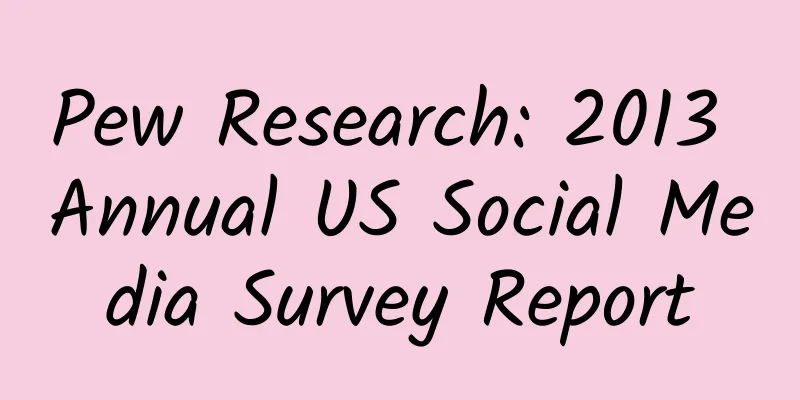Introduction to the causes of urinary incontinence in women

|
Introduce to you the causes of urinary incontinence in women. What causes urinary incontinence in women? Many women suffer from urinary incontinence, with urine leaking out whenever they cough, sneeze, laugh, lift heavy objects, run, etc. However, due to psychological reasons, many women are unwilling to tell others and instead endure it silently. Here are some of the causes of urinary incontinence in women. Stress urinary incontinence refers to the involuntary leakage of urine when abdominal pressure increases due to sneezing, coughing, crying, laughing, physical labor, etc. It is mostly caused by abnormalities in the normal anatomical relationship between the bladder and urethra, resulting in unequal pressure transmitted to the bladder and urethra due to increased abdominal pressure; or it may be caused by relaxation of the pelvic floor muscles. It often occurs in women who give birth naturally, are obese, or have diabetes, but it also occurs in women who have not given birth. The main causes of stress urinary incontinence in women are: 1. Age: The prevalence rate increases with age, with the peak age being 45-55 years old. This is related to pelvic floor relaxation, decreased estrogen, and urethral sphincter degeneration that occur with age. 2. Fertility: The risk of disease for women who give birth vaginally is significantly higher than that for women who give birth by cesarean section, and the risk of disease for women who give birth by cesarean section is significantly higher than that for women who have not given birth. It is related to excessive stretching and damage to the pelvic floor muscles and ligaments caused by childbirth. View larger image 3. Pelvic organ prolapse: Stress urinary incontinence and pelvic organ prolapse often exist together. 4. Obesity: Obese women are more likely to suffer from stress urinary incontinence, and losing weight can reduce the incidence. 5. Hysterectomy and other pelvic floor surgeries: destroy the normal structure of the pelvic floor and directly lead to stress urinary incontinence. 6. Estrogen: A decrease in estrogen has long been considered to be related to female stress urinary incontinence, and estrogen treatment is also advocated clinically. However, recent data have questioned the role of estrogen, suggesting that there is no correlation between changes in estrogen levels and the prevalence of stress urinary incontinence. Some scholars even believe that estrogen replacement therapy may aggravate urinary incontinence symptoms. Other possible related factors include smoking, physical work, mental stress, constipation, intestinal dysfunction, caffeine intake and chronic cough. The prevalence of urinary incontinence is relatively high in middle-aged and elderly women, especially after menopause. Normally, a woman's connective tissue forms a strong "encapsulation" structure around the vaginal wall like ligaments, fixing the vagina and uterus in the pelvis. When women lose their ovarian function after menopause, hormone secretion is deficient, connective tissue becomes loose, and the pelvis lacks the necessary support, prolapse is more likely to occur. Urinary incontinence is a common manifestation of disc prolapse. According to epidemiological surveys, 46.5% of postmenopausal elderly women have varying degrees and types of urinary incontinence, among which stress urinary incontinence is the most common. The above introduces the causes of urinary incontinence in women. However, many women who already have severe urinary incontinence do not pay enough attention to it and rarely see a doctor, let alone seek treatment. Urinary incontinence is very common among women. As long as the diagnosis is clear and the treatment is appropriate, urinary incontinence is a disease that can be completely cured. I hope you can go to the hospital in time and recover soon. |
>>: What causes vaginal bleeding in women?
Recommend
Is it normal to have less bleeding after a miscarriage?
After a woman has a miscarriage, her body often e...
What medicine is good for yeast during pregnancy
Fungus can be said to be a gynecological disease,...
Causes of high white blood cell count during pregnancy
Pregnant women pay special attention to their phy...
What are the causes of uterine hypertrophy?
What is the cause of uterine hypertrophy? Many pe...
Misconceptions about eating eggs
There are many taboos when eating eggs, but they ...
Can I have an MRI after hip replacement surgery? Don’t worry!
Author: Guo Donghong, attending physician, Nanfan...
Is there a high chance of ectopic pregnancy?
Generally speaking, ectopic pregnancy in women is...
What is the reason why girls grow leg hair?
If a girl finds that there is a lot of hair on he...
How to remove the mustache on a girl's mouth
Nowadays, girls pay more and more attention to th...
Is the pulsating belly a sign of conception?
Abdominal fluttering is a reaction that many wome...
How many days of bleeding is normal after having the IUD inserted? An authoritative doctor tells you!
IUD insertion is a very long-term contraceptive m...
What should pregnant women eat to strengthen the spleen and remove dampness?
A bad spleen and stomach or excessive moisture ca...
How to tell the gender of the baby by looking at the belly button during pregnancy
Pregnant women are beautiful and perfect. Many wo...
Why are giant pandas black and white? Are giant pandas only found in China?
The giant panda is a species endemic to China. It...
Does itchy breasts during pregnancy mean you are having a boy?
After pregnancy, due to the constant changes in h...









